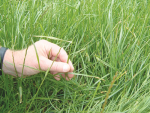
In key horticulture areas, such as the Bay of Plenty for kiwifruit orchards, the cost of buying good quality orchards, for example, is reaching record figures: Gold orchards sell for at least $500,000/ha and high performing green orchards for not much less.
There has been a modest increase in domestic sales volumes with prices driven by seasonal shortages. The real growth has been through export values, with significant future growth most likely to come from export sales.
The formula for increasing export sales is pitching our horticultural produce as a premium offering even when compared to the same produce from competitors in South America.
Zespri kiwifruit, for example, can claim a premium up to twice that of Chilean kiwifruit. To be able to pitch a product at premium pricing, the offering has to meet what the consumer is prepared to pay for. New Zealand has a unique advantage here in that we have some of the best growing conditions in the world and highly skilled and innovative growers.
The other key factor is the development of new varieties through world leading breeding programmes such as those run by Plant and Food Research. The new varieties are protected under international law allowing the developer to make a return on their R&D investment and offer a unique variety to consumers earning a premium over open source varieties.
The World Apple Review is a comprehensive assessment of current production, trade, consumption, prices, marketing, processing and competition. Produced annually, it provides an international competitiveness ranking of the world's 33 main apple producing-countries.
Of those 33 countries, only NZ, Italy and Austria were in the top third in all three sub-categories, signalling strong all-round performances: "Among all the major apple exporting countries, NZ has been consistently the largest risk taker in attempting to develop and market newer varieties that can win a premium from retailers and consumers, and can be rolled out around the world under a controlled marketing system." (2015 World Apple Review).
Fruit and vegetables were exported to 125 countries in 2015. The top five markets are in order of size: Australia, USA, Japan, the UK and, for the first time, China. These five export markets accounted for over $2.58 billion in sales, an increase of $130 million on 2014 and 60% of NZ's total horticultural exports in 2015. Japan is the largest importer of NZ's fresh vegetables and a big market for fruit. Onions are also exported in big quantities to the UK and Europe. There is however a gradual move for fruit and vegetables to be sold in Asia with a focus on the potential of China.
Another key to increasing horticulture's export performance is tariff reduction through free trade agreements.
All fruit has benefited from the Taiwan FTA, kiwifruit from the Korean FTA and buttercup squash, traditionally reliant on Japan, should also start to benefit from recent trade agreements with China, Taiwan and South Korea. The opportunities presented by China are huge as would be a FTA with the European Union and the UK.
The TPPA for horticulture has real tariff benefits totalling around $26 million per annum. NZ apples, kiwifruit, buttercup squash and onions will be the big winners when the TPPA comes into force. For each kiwifruit grower this will be about $6000.
However, the liberalisation of trade access rules to all the TPPA countries and with the FTA will progressively benefit other horticultural products as well. Often the difficulties associated with exporting to a new country take many years to overcome and even then changes in these rules can make continued exporting difficult. The TPPA will open the door for existing and new exporters no matter how big or small their company is.
Exports are the key to horticulture's growth based on increasing exports sales using the unique NZ formula of our growing conditions, our highly skilled and innovative growers and our world leading innovation including our breeding programmes.
- Mike Chapman is chief executive of HortNZ.
- HortNZ
- HORTICULTURE NZ
- horticulture
- Zespri
- kiwifruit



















